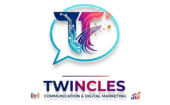Artificial Intelligence (AI) is no longer a futuristic idea—it is the driving force behind today’s most successful digital marketing strategies. As we move into 2025 and beyond, AI’s role will only deepen, helping brands make smarter decisions, automate complex tasks, and create hyper-personalized customer experiences.
In this blog, we’ll explore how businesses can master AI for digital marketing success, what trends to watch, and practical strategies to stay ahead in the AI-powered future.
Why AI Is Crucial for Digital Marketing in 2025
The digital marketing landscape is evolving rapidly. Consumers demand faster, more personalized experiences, and brands need to keep up without overwhelming their teams or budgets. AI provides the solution by offering:
– Automation: Simplifying time-consuming tasks such as managing ads and sending emails.
– Data-Driven Insights: Turning massive amounts of data into actionable strategies.
– Personalization at Scale: Crafting individualized experiences for millions of users.
– Predictive Capabilities: Anticipating customer needs and behaviors before they happen.
Why AI Is Crucial for Digital Marketing in 2025
1. Hyper-Personalization
Today’s customers expect brands to know their preferences. AI enables businesses to analyze browsing habits, past purchases, and online behavior to deliver tailored content, product recommendations, and ads.
Example: Spotify’s personalized playlists and Amazon’s product suggestions are perfect examples of AI-driven personalization that keeps users engaged and loyal.
Action Tip: Use AI-powered CRM tools like Salesforce Einstein or Adobe Sensei to segment audiences and automate personalized communications.
2. Smarter Content Creation
AI tools are playing a growing role in supporting content creation. Platforms like Jasper and Copy.ai can generate blog ideas, social media captions, email marketing copy, and even ad headlines.
While human creativity is irreplaceable, AI can provide a strong foundation, speeding up the brainstorming and drafting process.
Action Tip:
Combine AI writing tools with human editing to maintain authenticity and emotional resonance in your brand voice.
3. Predictive and Prescriptive Analytics
Predictive analytics forecasts future customer actions based on past data, allowing marketers to target prospects more effectively. Prescriptive analytics goes a step further, offering actionable recommendations on what strategies to implement.
Example:
Retail brands use predictive analytics to suggest products a customer is likely to buy next, boosting cross-sell and upsell opportunities.
Action Tip:
Incorporate predictive tools like Pega or IBM Watson into your marketing strategy to fine-tune customer targeting and campaign optimization.
4. AI-Driven Advertising
AI is transforming paid advertising by streamlining bidding, enhancing creatives, and precisely targeting audiences. Tools like Google Ads Smart Bidding and Facebook’s Advantage+ automate the heavy lifting and deliver stronger ROI.
Action Tip:
Use AI tools such as Albert or Smartly.io to manage complex advertising campaigns across multiple platforms effortlessly.
5. Chatbots and Virtual Assistants
AI-driven chatbots are evolving rapidly, delivering human-like conversations around the clock.They can handle customer queries, guide users through websites, and even close sales.
Example:
Brands like Sephora and H&M use chatbots to help customers find products, book appointments, and answer FAQs quickly.
Action Tip:
Implement chatbots using tools like Drift or Intercom to enhance customer service without increasing human resource costs.
6. Visual and Voice Search Optimization
By 2025, visual and voice searches are set to become the primary methods consumers use to discover products and services, thanks to AI tools like Google Lens and Alexa.
Action Tip:
Optimize your content for voice queries (think conversational keywords) and ensure your product images are SEO-friendly to stay visible in visual searches.
Future AI Trends Marketers Need to Watch
As we look beyond 2025, several AI trends are poised to shape the future of digital marketing:
– Conversational AI: Virtual assistants will become more natural and intuitive.
– Emotion AI: Machines will start interpreting human emotions to adjust responses.
– Generative AI: Tools like DALL·E and GPT models will assist in generating original images, videos, and text content.
– Zero-Click Searches: With AI answering queries directly, SEO strategies must adapt to prioritize visibility without requiring users to click.
Brands that anticipate these changes and adapt early will maintain a competitive edge.
Practical Tips to Master AI in Digital Marketing
1. Invest in AI Education:
Train your marketing teams on AI tools and best practices to maximize their effectiveness.
2. Start with One Area:
Rather than overhauling your entire marketing stack, begin with one AI solution—like automating emails or personalizing ads—and expand from there.
3. Focus on Data Quality:
The quality of AI outcomes depends entirely on the quality of the data it receives. Ensure your customer data is clean, updated, and ethically collected.
4. Maintain Human Oversight:
AI can suggest strategies, but human marketers bring creativity, empathy, and critical thinking to the table. Combine AI efficiency with human intuition.
5. Measure and Optimize:
Continuously track the performance of AI-driven initiatives and refine your strategies based on real-world outcomes.
